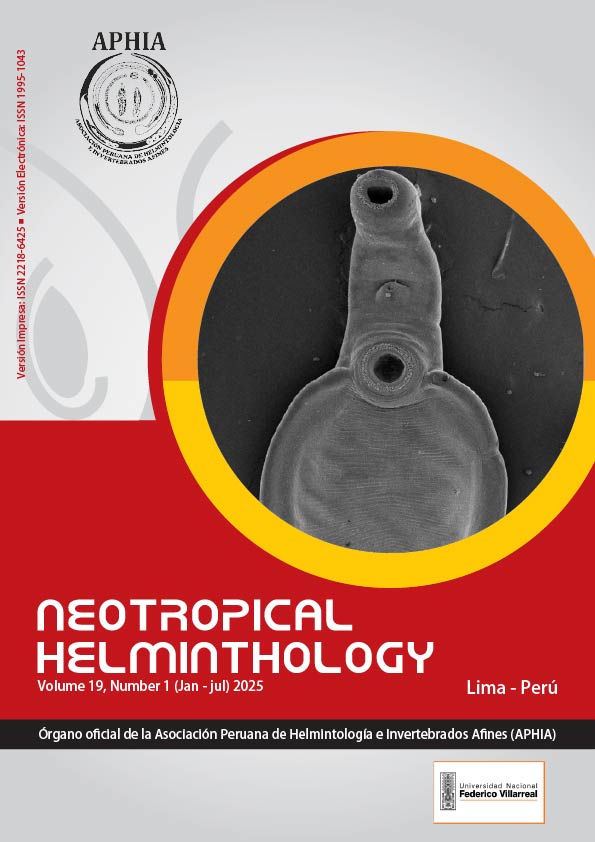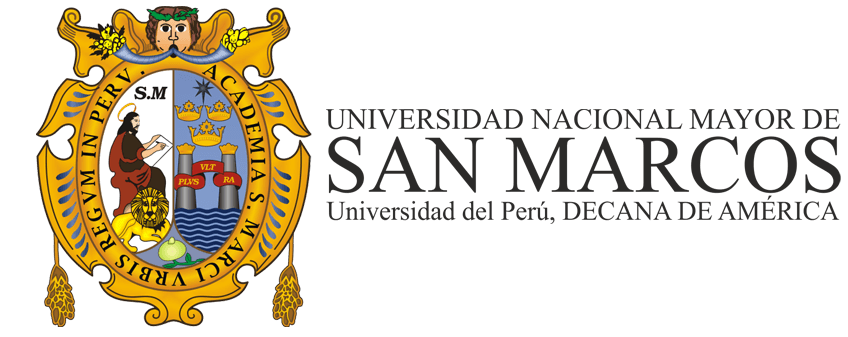CARCINOMA EPIDERMOIDE ASOCIADO A LA INFESTACIÓN CRÓNICA POR HABRONEMA MUSCAE EN UN CABALLO DE RAZA PINTO: REGISTRO DE UN CASO EN VENEZUELA
DOI:
https://doi.org/10.24039/rnh2008221139Palabras clave:
balanopostitis, epidermoide carcinoma, equine, Habronema muscae, habronemosisResumen
Se remite un caballo (Equus caballus), sexo macho, de raza Pinto y 8 años de edad. Con historia de balanopostitis nodular exudativa crónica complicada con infección bacteriana secundaria data de 4 años. Emaciación crónica severa. Oliguria, estranguria y polidipsia. Linfadenomegalia de nódulos linfáticos inguinales y femurales preescapulares. Se le practicó eutanasia. Posteriormente se le prácticó necropsia por las técnicas sistemáticas descritas para equinos. Se tomaron secciones de tejido para estudio histopatológico y fueron procesadas por los métodos convencionales de procesamiento histológico. Fueron tomadas muestras de heces para estudios parasitológicos. El examen macroscópico reveló emaciación crónica severa. Balanopostitis exudativa crónica severa con infección bacteriana secundaria. Se evidencio hidroperitoneo marcado. Linfadenomegalia de nódulos mesentéricos. Los cortes histológicos evidenciaron: Balanopostitis crónica severa, con focos de proliferación de células escamosas espinocelulares con abundante acantosis, pleomorfismo, hipercromasia nuclear, anaplasia, figuras mitóticas típicas y atípicas constantes, presencia de perlas corneas abundantes. En algunas zonas se observaron granulomas con formas parasitarias tipo Habronema. Los resultados del estudio coprológico fueron consistentes con huevos de Habronema muscae. En conclusión: la historia clínica, los hallazgos macroscópicos e histológicos evidencian un síndrome de balanopostitis crónica y carcinoma epidermoide metastásico.
Descargas
Publicado
Cómo citar
Número
Sección
Licencia

Esta obra está bajo una licencia internacional Creative Commons Atribución-NoComercial-SinDerivadas 4.0.
OBJETO: El AUTOR-CEDENTE transfiere de manera TOTAL Y SIN LIMITACIÓN alguna al CESIONARIO los derechos patrimoniales que le corresponden sobre la (s) obra(s) tituladas: xxxxxxxxxxxxxxxx, por el tiempo que establezca la ley internacional. En virtud de lo anterior, se entiende que el CESIONARIO adquiere el derecho de reproducción en todas sus modalidades, incluso para inclusión audiovisual; el derecho de transformación o adaptación, comunicación pública, traducción, distribución y, en general, cualquier tipo de explotación que de las obras se pueda realizar por cualquier medio conocido o por conocer en el territorio nacional o internacional.
REMUNERACIÓN: La cesión de los derechos patrimoniales de autor que mediante este contrato se hace será a título gratuito.
CONDICIONES Y LEGITIMIDAD DE LOS DERECHOS: El AUTOR-CEDENTE garantiza que es propietario integral de los derechos de explotación de la(s) obra(s) y en consecuencia garantiza que puede contratar y transferir los derechos aquí cedidos sin ningún tipo de limitación por no tener ningún tipo de gravamen, limitación o disposición. En todo caso, responderá por cualquier reclamo que en materia de derecho de autor se pueda presentar, exonerando de cualquier responsabilidad al CESIONARIO.
LICENCIA DE ACCESO ABIERTO: El AUTOR-CEDENTE autoriza que manuscrito publicado en La Revista Neotropical Helminthology permanece disponible para su consulta pública en el sitio web https://www.neotropicalhelminthology.com/ y en los diferentes sistemas de indexación y bases de datos en las que la revista tiene visibilidad, bajo la licencia Creative Commons, en la modalidad Reconocimiento-No comercial- Sin Trabajos derivados –aprobada en Perú, y por lo tanto son de acceso abierto. De ahí que los autores dan, sin derecho a retribución económica, a la Asociación Peruana de Helmintología e Invertebrados Afines (APHIA), los derechos de autor para la edición y reproducción a través de diferentes medios de difusión.


 Numero 2 Volumen 19 - 2025 (versión Anticipada)
Numero 2 Volumen 19 - 2025 (versión Anticipada)














































